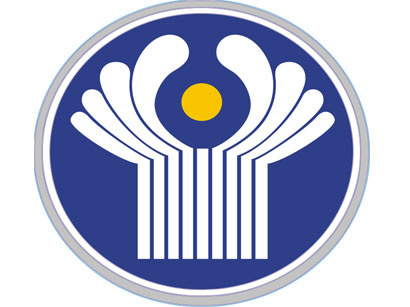Baku may become int'l financial center

By Nigar Orujova
The 5th Baku International Banking Conference of CIS countries was held last week to explore the potential of CIS financial markets.
Held under the theme "Financial markets of the CIS: new opportunities and global risks", the conference discussed issues of improving the stability of the CIS financial markets amid the ongoing global economic crisis and the new possibilities of interaction following adoption of the Free Trade Area of the CIS. The discussions also covered the introduction of alternative financial products and advanced technologies, the development of Islamic banking in the CIS and the capabilities to raise funds in order to implement development programs in the Commonwealth.
The conference brought together around 180 participants from 15 countries representing governments and ministries of the CIS member states, international development institutions, as well as the heads of the central and largest banks of the CIS, Asia and Europe.
The event was timed to celebrate the 20th anniversary of the establishment of the largest financial institution in Azerbaijan - the International Bank of Azerbaijan (IBA).
IBA Board Chairman Jahangir Hajiyev said at the conference that IBA has played a role in developing relations between the economic entities of the CIS countries.
"The IBA has contributed to the development of relations between the economic entities of the CIS countries, as well as their integration into CIS activity," Hajiyev said.
Chairman of the steering body of the CIS Financial and Banking Council, Anatoly Kazakov, said Baku shows rapid growth as a financial center.
"Baku is turning into a serious, rapidly growing financial center, transiting flows from Asia and Europe," Kazakov said.
"We are looking forward to creating an international financial center in Baku and we hope it will work in contact with Moscow, Kiev and Almaty financial centers in the future," Kazakov said.
He noted that the CIS is tasked to create an international financial center in the Commonwealth, which will become one of the most powerful in the world as time goes by.
"If Arab countries have been able to do it in five years, we will need more time, but the course has already been set," Kazakov said.
Tightening of the requirements for the capitalization of banks by the Central Bank of Azerbaijan (CBA) -- the fivefold increase of capital requirement for 2014 to 50 million manats (around $63.7 million) -- makes the country's market attractive for CIS banks, Kazakov believes.
"The Central Bank of Azerbaijan is taking very serious measures aimed at protecting the country's banking market from risks," he said. "New requirements are hard to follow. Several banks will stop working, but on the other hand, this creates good conditions for unification of CIS banks. There is a good business environment."
In turn, CBA CEO Rashad Orujov said the banks have launched negotiations on their consolidation.
"Negotiations are underway...between different banks. Of course, no one would disclose the plans at this stage. We are waiting for the results. This is not an easy process. This decision will lead to considerable changes in the market," Orujov said.
Kazakov highlighted further that the banking system of the CIS continues to grow.
"The volume of its assets has increased from $1 trillion to $1.5 trillion over the last year. However, the system and its integration are still weak. Even so, national currencies are showing a tendency of positive growth," Kazakov said.
According to Kazakov, the CIS financial market has great potential.
"It is important to attract pension funds, Islamic financing, and long-term resources. It is important to strengthen the relations between financial centers in the CIS," Kazakov noted.
According to him, the next step in the development of the CIS Financial and Banking Council is its transfer to the Financial and Banking Union.
"We will consider taking measures to attract more banks to cooperation next year, because we need a common economic space," Kazakov said. "Over five years, we have formed a good environment for banks' communication and the attraction of investments."
According to the Secretary General of the Banking Association for Central and Eastern Europe Istvan Lengyel, there is a need in the CIS to build and develop a strong infrastructure.
"It is not easy to attract funding for infrastructure projects in the CIS, however, there are opportunities for this and to attract the funds of international financial institutions," Lengyel said.
Lengyel said infrastructure projects are financed in some countries by various organizations, including pension funds. However, in these cases, one must consider the level of awareness and preparedness of such institutions for the risks, as risk management plays an important role in these processes.
He stressed that taking into account the existing risks, the number of small banks should be reduced, thus increasing the number of financial markets and funds.
"This process can be carried out through the consolidation of banks, that is, their enlargement, as well as by increasing the requirements for the banks' capitalization," he said.
CIS Executive Secretary Sergei Lebedev said that Azerbaijan's active position promotes the CIS countries' activity.
According to Lebedev, despite certain problems and periodic crises, such as the withdrawal of Georgia from the CIS, as well as the global economic crisis, the CIS is improving, developing and strengthening.
"Steps are being taken to promote cooperation among the countries of the Commonwealth in the financial and banking sector, and the next meeting on this issue will be held next year in Belarus," Lebedev said.
Here we are to serve you with news right now. It does not cost much, but worth your attention.
Choose to support open, independent, quality journalism and subscribe on a monthly basis.
By subscribing to our online newspaper, you can have full digital access to all news, analysis, and much more.
You can also follow AzerNEWS on Twitter @AzerNewsAz or Facebook @AzerNewsNewspaper
Thank you!
